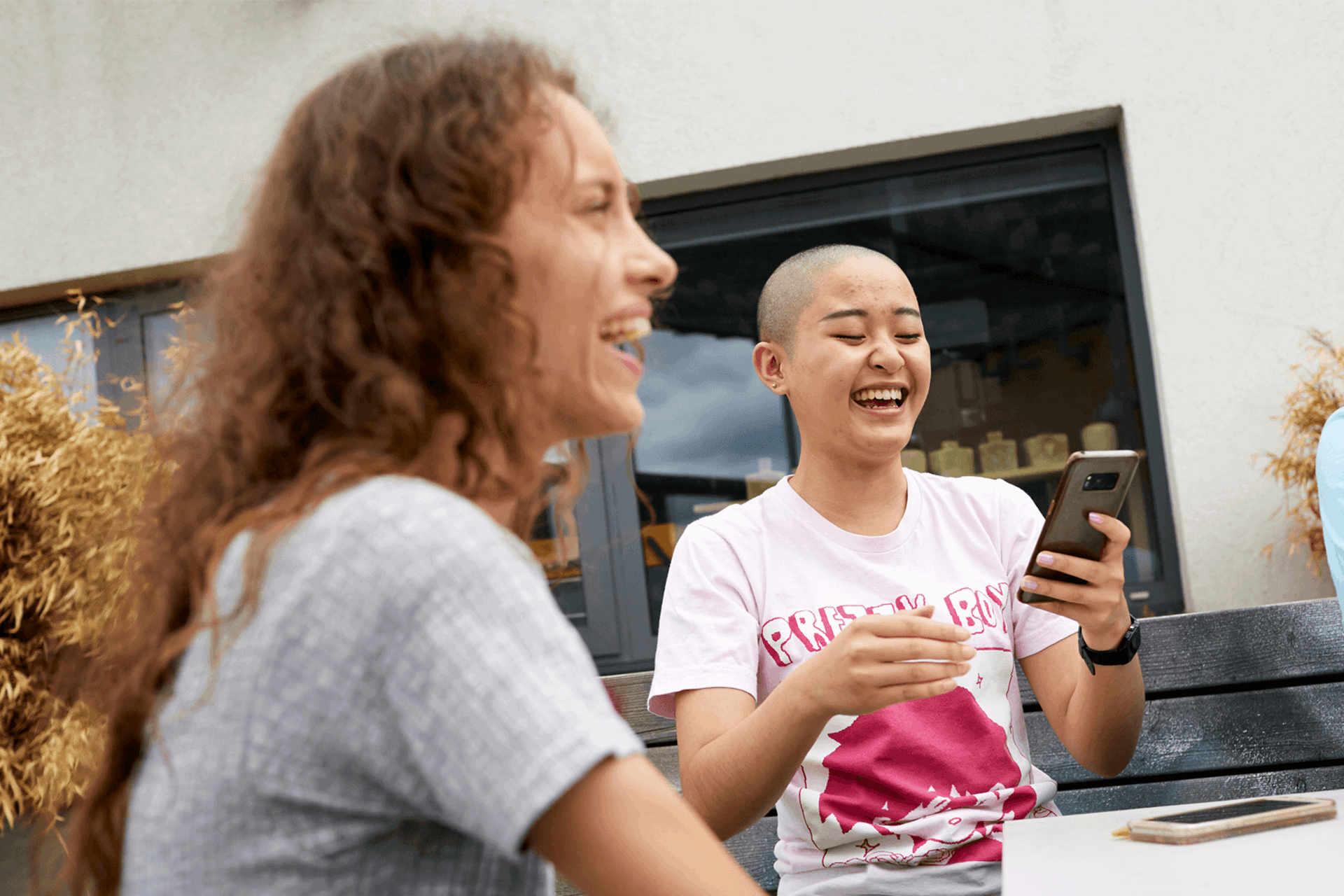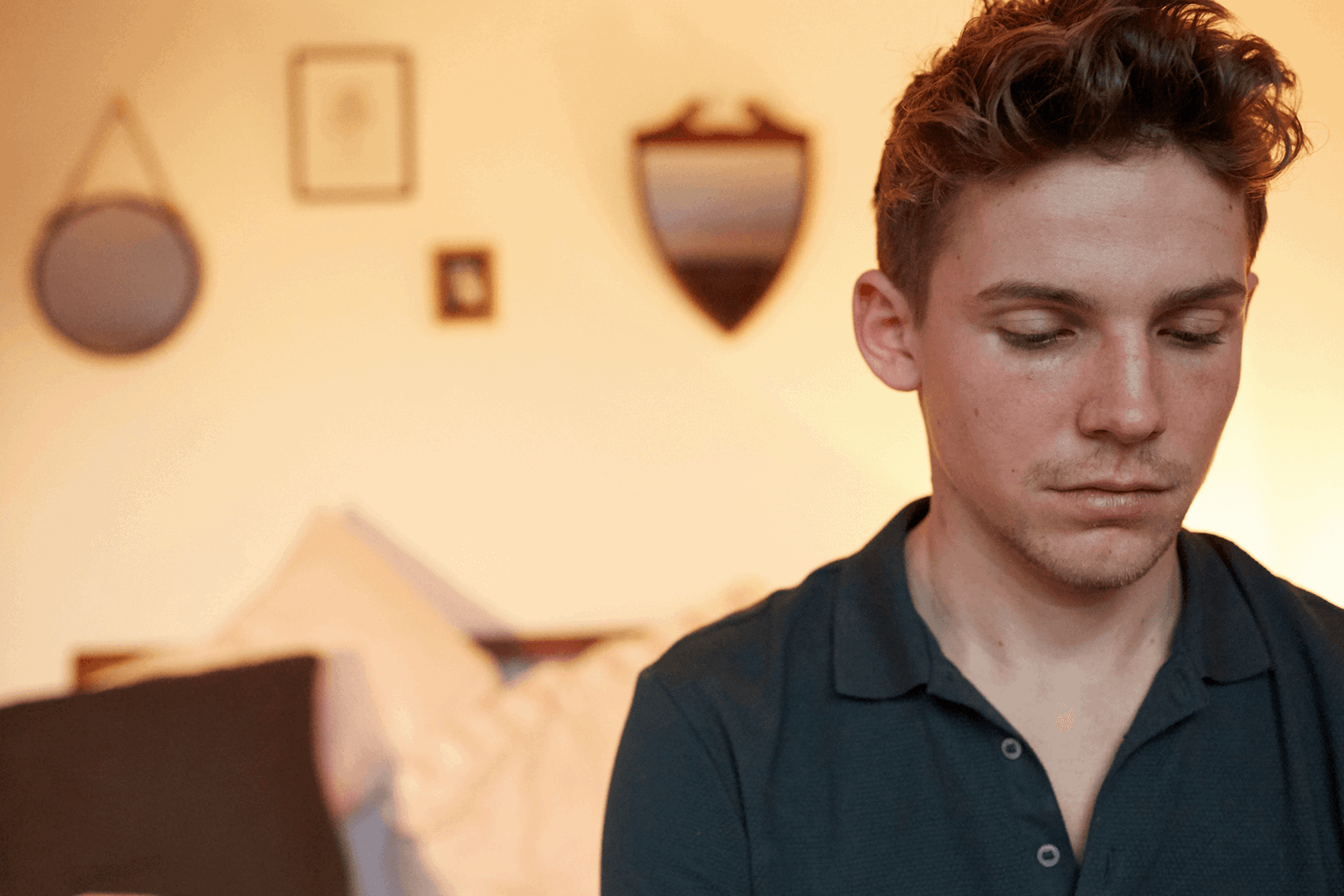Topics mentioned: friends, social media and mental health, self-esteem
About: Fomo - the fear of missing out - we've all had it: you see something on social media and feel like you've missed something important by not being there. Abbey shares her tips on dealing with this.
Although the fear of missing out may not seem like a big deal to some, to others it can be detrimental to their mental health. It’s so easy to get wrapped up in social media and browse the profiles of friends or celebrities for hours on end and just think, why can’t my life be like that? What am I doing wrong? It’s something almost everyone has experienced, whether it’s being envious of a friend on holiday, or scrolling through photos of models and comparing yourself to them.
A person’s profile is their life through rose-tinted glasses. People broadcast the ‘ups’, but rarely the ‘downs’.
The reality behind FOMO
The truth is, people only post the things online that they want you to see. A person’s profile is their life through rose-tinted glasses. People broadcast the ‘ups’, but rarely the ‘downs’. Social media can be used to create a false identity, with account owners picking and choosing what aspects of their life they share with the world.
For example, an influencer you follow on Instagram may post a photo of them by a pool on holiday, while you’re stuck at home with typical British weather making for a gloomy day. But what they didn’t mention in their post is that their flight was delayed, they became travel sick, and they got lost trying to find their hotel. This is because that’s not the image they want displayed to the world; it isn’t glamorous. They want you to see what went right, rather than what went wrong.
Three tips on how to deal with FOMO
-
Limit your time on social media
Of course, this may be an obvious answer, and it may be easier said than done, but the amount of time we spend on social media is often the root of the problem.
By spending hours on end scrolling through your feed and wishing you could have the lives of the people you follow, you are missing out on creating happy memories yourself.
Why not arrange to meet a friend, or start up a new hobby? Being present in the real world, rather than the online one, will make you much happier.
-
Take note of the things you are grateful for
Sure, you may not be at Disneyland, or on a beach in the Bahamas right now, but try to remember the things you do have to be grateful for, whether that may be family, friends, or past experiences.
For me personally, this is the most important factor in dealing with FOMO. I have so much to be grateful for, and I wouldn’t change those experiences for anything.
-
Remember what you see on social media isn't reality
As I mentioned previously, we choose what we want people to see online. Nothing - and nobody – is perfect. We all have our own flaws, we just don’t want to publicise them for the whole world to see.
When I posted my experience of seeing Ariana Grande in concert, did I mention the long six hours I was queueing for, or the panic attack I had post-concert when I thought I wouldn’t be able to get home?
Of course not. What I posted about was seeing my idol in concert for the first time. The positives outweighed the negatives, and what I had to be grateful for was more important.
If you had £86,400 and someone stole £10, would you throw away the £86,390 as revenge? Of course not. You’d move on and live. See, you have 86,400 seconds in a day. Don’t let ten seconds of dwelling on a post online ruin the remaining 86,390 seconds. Live your life, and make the best out of it that you can.
Abbey is one of our YoungMinds Activists. To find out more about our Activist programme, check out our page on how to become a YoungMinds Activist.
By spending hours on end scrolling through your feed and wishing you could have the lives of the people you follow, you are missing out on creating happy memories yourself.
More information and advice
We have tips and advice to help you find the support you need. Take a look at our guides.
Where to get help
However you're feeling, there are people who can help you if you are struggling. Here are some services that can support you.
-
Youth Access
Provides information about local counselling and advice services for young people aged 11-25.
Put in your location and what you need help with into their 'Find help' search, and see what services are available in your area.
-
Shout
Text SHOUT to 85258.
Shout provides free, 24/7 text support for young people across the UK experiencing a mental health crisis.
All texts are answered by trained volunteers, with support from experienced clinical supervisors.
Texts are free from EE, O2, Vodafone, 3, Virgin Mobile, BT Mobile, GiffGaff, Tesco Mobile and Telecom Plus.
Texts can be anonymous, but if the volunteer believes you are at immediate risk of harm, they may share your details with people who can provide support.
- Opening times:
- 24/7






